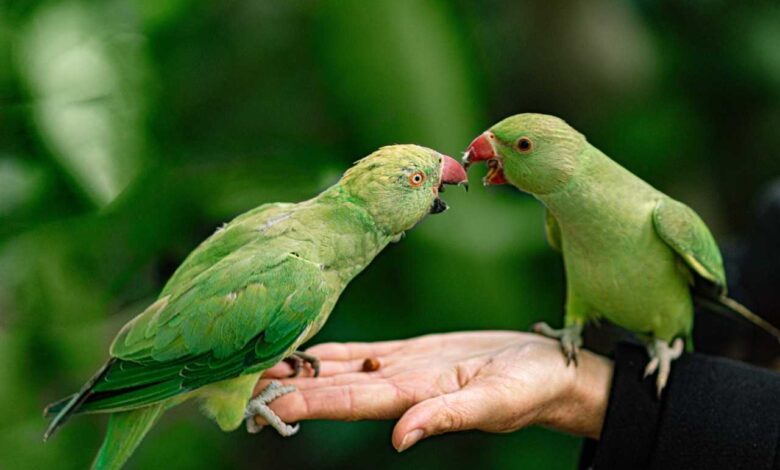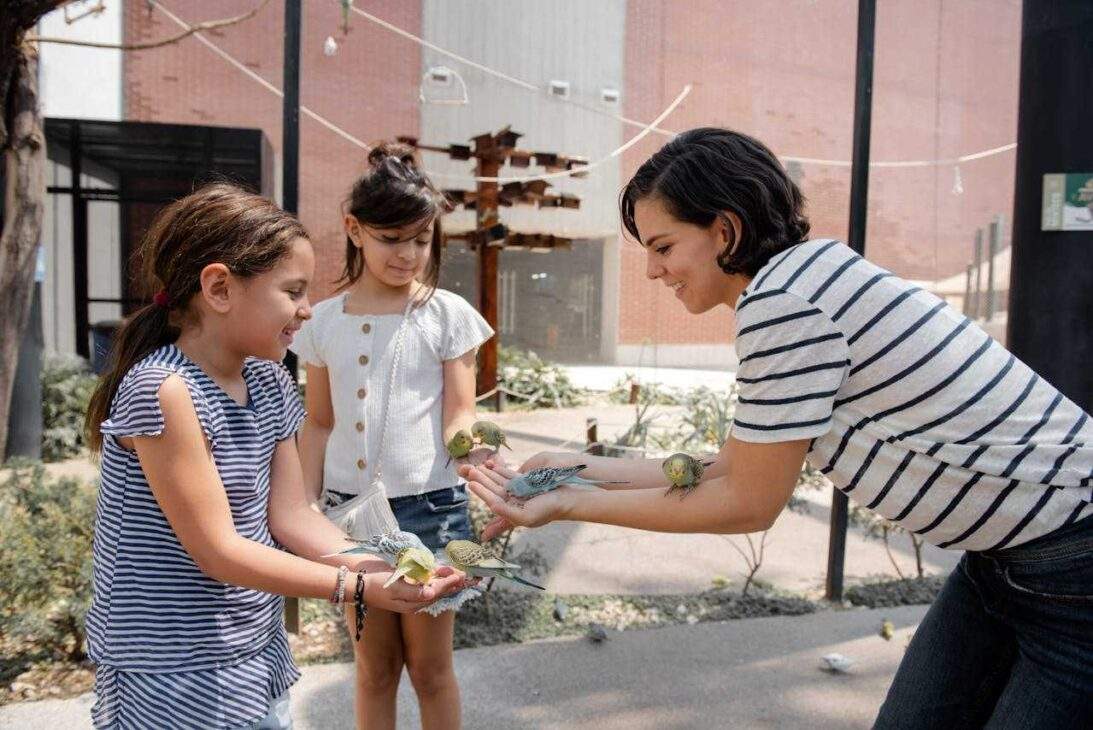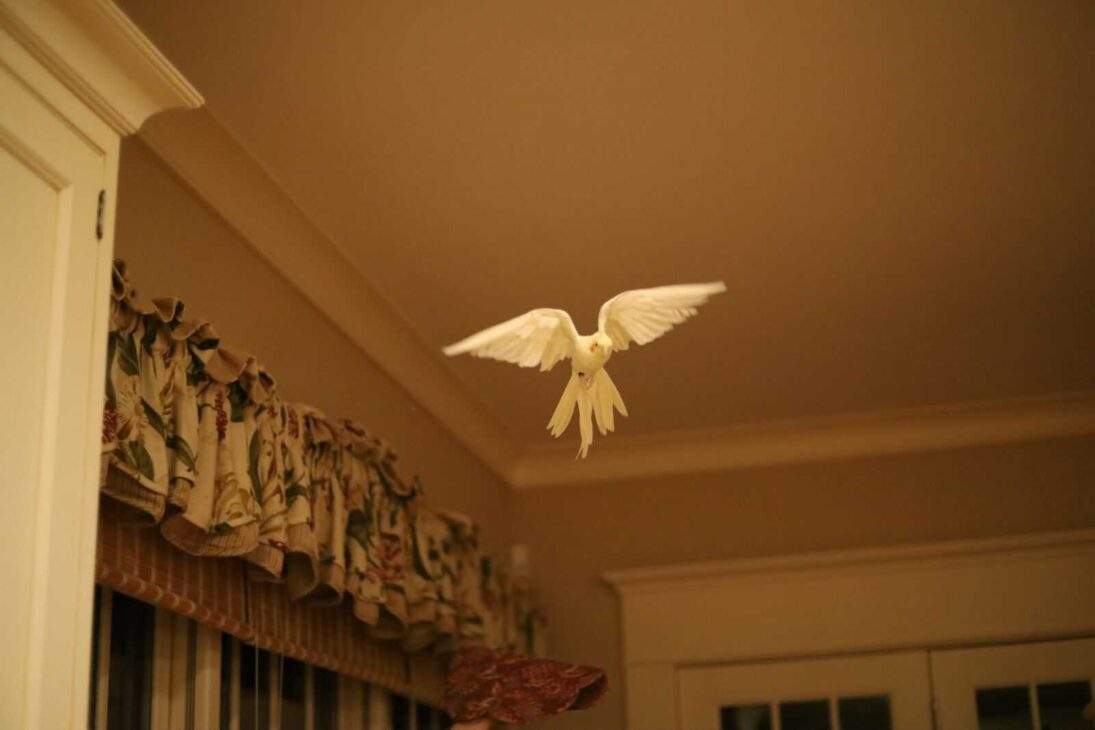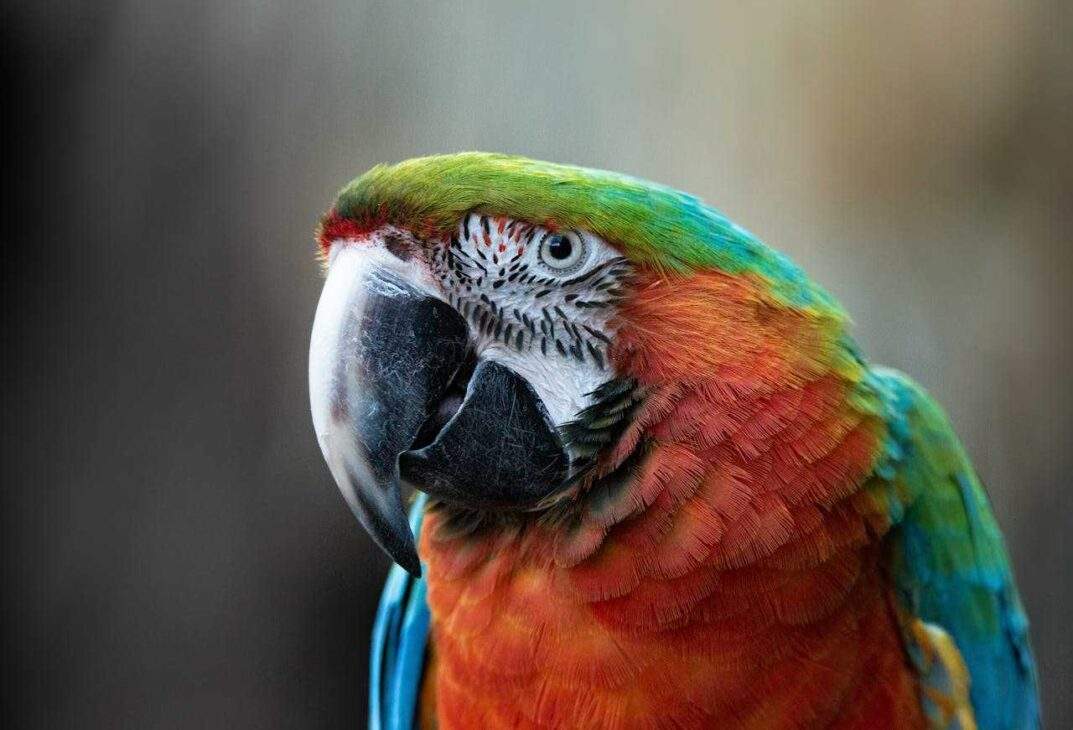7 Crucial Steps to Ethical Bird Ownership: A Guide to Responsible Care

Owning a pet bird can be a rewarding experience, offering companionship and beauty. However, it is essential to approach ethical bird ownership with a deep understanding of the ethical considerations involved. Birds are complex creatures with unique needs, and ensuring their welfare in captivity requires a responsible and informed approach. This article explores the ethical aspects of pet bird ownership, highlighting key issues such as bird welfare, ethical bird breeding, bird rescue, and wildlife conservation.
Birds, with their vibrant plumage and captivating songs, have enchanted humans for centuries. Their intelligence and playful personalities make them beloved companions. However, owning a pet bird comes with significant responsibilities. It’s not just about providing food, water, and a cage; it’s about understanding the complex needs of these creatures and ensuring their well-being.
In this exploration of ethical pet bird ownership, we’ll delve into the responsibilities that come with sharing your life with a feathered friend. From the moment you bring a bird into your home, it’s essential to consider their needs beyond basic care. We’ll discuss topics such as ethical sourcing, habitat enrichment, and the importance of understanding a bird’s natural behaviors. Together, let’s explore how to be responsible and compassionate bird owners.
Ethical Pet Bird Ownership
Understanding Bird Welfare
Bird welfare is a paramount consideration for anyone thinking about keeping a pet bird. Birds have specific needs that must be met to ensure their well-being. These include adequate space for flight, social interaction, mental stimulation, and proper nutrition. Unlike other pets, birds require environments that closely mimic their natural habitats to thrive.
Birds are inherently active animals that spend a significant part of their day flying, foraging, and socializing. Confining them in small cages can lead to physical and psychological issues, including obesity, depression, and repetitive behaviors such as feather plucking. To address these needs, bird owners must provide a spacious cage that allows for ample flight and exercise. Regularly allowing birds to fly outside their cages in a safe, controlled environment is also crucial.
Proper nutrition is another critical aspect of bird welfare. Birds have diverse dietary needs depending on their species, and a diet consisting solely of seeds can lead to nutritional deficiencies. A balanced diet for pet birds typically includes a variety of fruits, vegetables, high-quality pellets, and a limited amount of seeds. Regular consultation with an avian veterinarian can help ensure that a bird’s dietary needs are being met.

The Importance of Responsible Bird Ownership
Responsible bird ownership involves understanding and meeting these needs consistently. This means providing a spacious cage, opportunities for free flight, a balanced diet, and regular social interaction. It also involves recognizing the long-term commitment required, as many pet birds have long lifespans, sometimes exceeding 50 years.
Owning a bird is a long-term commitment that often spans several decades. Potential bird owners should consider their ability to provide consistent care throughout the bird’s life, including periods of personal change such as moving, job transitions, or changes in family dynamics. Birds, especially social species like parrots, require daily interaction and mental stimulation. Owners must be prepared to invest time and effort into building a bond with their bird and meeting its social needs.
Additionally, responsible ownership includes regular veterinary care. Birds are adept at hiding illnesses, and regular check-ups with an avian veterinarian can help detect and address health issues early. Preventative care, including vaccinations and parasite control, is essential for maintaining a bird’s health.
Bird Captivity Ethics
The ethics of keeping birds in captivity is a topic of ongoing debate. While some argue that birds can adapt well to life with humans, others believe that captivity inherently restricts their natural behaviors and can lead to physical and psychological issues. Bird owners must strive to create environments that allow birds to express their natural behaviors as much as possible.
Birds in captivity often face challenges that do not occur in the wild. The lack of freedom to fly long distances, forage naturally, and engage in complex social interactions can lead to frustration and behavioral problems. Providing a stimulating environment that encourages natural behaviors is crucial. This can include a variety of perches, toys, and foraging opportunities within the cage, as well as supervised time outside the cage for exploration and exercise.
Moreover, the ethical implications of captivity extend to the bird’s psychological well-being. Birds are intelligent creatures capable of forming strong emotional bonds. Ensuring that they have social interactions, whether with humans or other birds, is vital for their mental health. Owners must recognize and respond to signs of stress, such as changes in eating habits, feather plucking, or increased aggression, and take steps to alleviate these issues.
Bird Welfare and Ethical Considerations
Bird Habitat Destruction
One significant ethical concern is the impact of habitat destruction on bird populations. Many species are driven to captivity due to the loss of their natural habitats. Responsible bird owners can play a role in conservation efforts by supporting initiatives aimed at protecting wild bird habitats.
Habitat destruction due to deforestation, urbanization, and agricultural expansion is a leading cause of the decline in wild bird populations. Birds that lose their natural habitats often face decreased food availability, reduced breeding sites, and increased vulnerability to predators. Conservation efforts aimed at preserving and restoring natural habitats are essential for protecting wild bird populations.
Bird owners can contribute to these efforts by supporting organizations that focus on habitat conservation. Donations, volunteer work, and advocacy for policies that protect natural habitats can all make a difference. Additionally, raising awareness about the importance of habitat conservation within their communities can help garner broader support for these initiatives.
The Illegal Bird Trade
The illegal bird trade is another critical issue. Many birds are captured from the wild and sold illegally, leading to severe consequences for their populations. Ethical bird owners should ensure that their pets are obtained from reputable sources that do not engage in illegal trade practices.
The illegal bird trade has devastating effects on wild bird populations. Birds are often captured using inhumane methods, and many do not survive the journey to market. Those that do survive often suffer from poor health and stress due to inadequate care and transportation conditions. The removal of birds from their natural habitats can also disrupt local ecosystems, as birds play essential roles in seed dispersal and pest control.
Prospective bird owners should be diligent in researching the sources of their birds. Reputable breeders and pet stores should be able to provide documentation proving that their birds were bred in captivity and not captured from the wild. Supporting rescue organizations and adopting birds that need homes can also be a more ethical option.
Ethical Bird Breeding
Ethical Bird Breeding Practices
Bird breeding should be conducted ethically to avoid contributing to overpopulation and ensure the health and well-being of the birds. This includes maintaining genetic diversity, providing proper care for breeding pairs, and avoiding inbreeding. Prospective bird owners should seek breeders who adhere to these ethical standards.
Ethical bird breeding involves more than just producing healthy offspring. It requires a commitment to the long-term welfare of the birds, including providing appropriate housing, nutrition, and medical care for breeding pairs. Breeders should avoid breeding birds that are closely related to prevent genetic issues and ensure that offspring have a diverse gene pool.
Maintaining genetic diversity is crucial for the health and vitality of bird populations. Inbreeding can lead to a higher incidence of genetic disorders, reduced fertility, and weaker immune systems. Ethical breeders take steps to introduce new genetic material into their breeding programs regularly and avoid practices that compromise the genetic health of their birds.
The Role of Bird Rescue
Bird rescue organizations play a crucial role in providing care for abandoned, neglected, or mistreated birds. Adopting a bird from a rescue can be a more ethical choice than purchasing from a breeder, as it helps reduce the demand for breeding and provides a home for a bird in need.
Bird rescues often deal with birds that have been surrendered by their owners, seized from abusive situations, or abandoned. These birds can have a range of health and behavioral issues due to their past experiences. Rescue organizations work to rehabilitate these birds, providing medical care, behavioral training, and finding them permanent, loving homes.
Adopting a bird from a rescue not only helps reduce the number of birds needing homes but also supports the efforts of rescue organizations. Many rescues rely on donations and adoption fees to fund their operations, so adopting a bird can directly contribute to their ability to continue their work.
Sanctuaries for Birds
Bird sanctuaries offer safe havens for birds that cannot be released back into the wild. These facilities provide environments where birds can live out their lives in conditions that closely mimic their natural habitats. Supporting bird sanctuaries through donations or volunteer work is another way to promote ethical bird care.
Sanctuaries are often the last refuge for birds that are too injured, ill, or behaviorally compromised to be adopted. These birds can include those rescued from illegal trade, abandoned by owners, or retired from breeding programs. Sanctuaries provide long-term care, ensuring that birds have access to proper nutrition, medical care, and social interaction.
Supporting sanctuaries can take many forms, from financial donations to volunteering time and skills. Volunteers may help with daily care tasks, habitat maintenance, educational programs, and fundraising efforts. By supporting sanctuaries, individuals can contribute to the well-being of birds that have nowhere else to go.
The Social and Mental Needs of Pet Birds
Bird Enrichment
Bird enrichment involves providing activities and environments that stimulate a bird’s natural behaviors and keep them mentally engaged. This can include toys, foraging opportunities, and regular interaction with their human caregivers. Enrichment is crucial for preventing boredom and associated behavioral problems.
Enrichment activities should mimic the natural behaviors of birds as closely as possible. Foraging toys, for example, can simulate the process of searching for food in the wild, keeping birds mentally and physically active. Interactive toys that encourage problem-solving can also help prevent boredom and stimulate cognitive function.
In addition to toys, environmental enrichment can include changes to the bird’s habitat. Rotating toys and perches, introducing new textures and materials, and providing opportunities for safe outdoor time can all contribute to a stimulating environment. Regular interaction with humans, such as training sessions, playtime, and socialization, is also essential for keeping birds mentally engaged.

Social Needs of Pet Birds
Many bird species are highly social and require regular interaction to stay mentally healthy. Birds that are kept alone can develop issues such as depression and self-destructive behaviors. Ensuring that pet birds have social opportunities, either with humans or other birds, is a vital aspect of ethical bird ownership.
Social interaction is critical for birds’ mental health. In the wild, many bird species live in flocks and engage in complex social behaviors. Captive birds need regular interaction to prevent loneliness and boredom. For species that thrive on social interaction, having a companion bird can be beneficial. However, introducing new birds should be done carefully to ensure compatibility and prevent aggression.
For single birds, human interaction is essential. This can include talking to the bird, providing out-of-cage time, and engaging in training activities. Birds that form strong bonds with their owners can suffer from separation anxiety if left alone for extended periods. Owners should consider their ability to provide consistent social interaction before acquiring a bird.
The Impact of Isolation
Isolation can have severe consequences for pet birds. Birds that are left alone for long periods can become lonely and depressed, leading to health issues and destructive behaviors. Providing companionship and mental stimulation is essential for their well-being.
Signs of isolation stress in birds can include changes in vocalization, loss of appetite, feather plucking, and increased aggression. Addressing these issues requires providing more social interaction and enrichment. Owners may need to adjust their routines to spend more time with their birds or consider the addition of a companion bird.
Additionally, birds that are isolated for long periods may become more susceptible to illness due to the stress of loneliness. Ensuring that birds have a stimulating and interactive environment is crucial for preventing these issues and promoting overall health.
Addressing Avian Behavior Problems
Understanding Avian Behavior Problems
Behavior problems in pet birds can arise from various factors, including inadequate social interaction, lack of enrichment, and poor living conditions. Common issues include feather plucking, aggression, and excessive vocalization. Understanding the root causes of these behaviors is the first step in addressing them.
Strategies for Managing Behavior Problems
Managing avian behavior problems requires a comprehensive approach that includes environmental enrichment, social interaction, and sometimes professional intervention. Consulting with an avian veterinarian or a bird behavior specialist can provide valuable insights and strategies for resolving these issues.
Wildlife Conservation and Pet Birds
The Role of Bird Owners in Conservation
Bird owners can play a significant role in wildlife conservation. By choosing to adopt rather than purchase, supporting ethical breeders, and advocating for habitat conservation, they can help reduce the demand for wild-caught birds and contribute to the preservation of bird species in the wild.
Conservation efforts benefit from the support of informed and responsible bird owners. Advocacy for policies that protect bird habitats, donations to conservation organizations, and participation in citizen science projects that track bird populations can all make a difference. Additionally, educating others about the importance of conservation and ethical bird ownership can help spread awareness and encourage more responsible practices.
Bird owners can also participate in local conservation efforts, such as habitat restoration projects and community education programs. By actively engaging in conservation activities, bird owners can contribute to the preservation of bird species and their natural environments.
Supporting Bird Conservation Organizations
There are numerous organizations dedicated to bird conservation. Supporting these organizations through donations, volunteer work, or advocacy can help protect wild bird populations and their habitats. Ethical bird owners should consider contributing to these efforts as part of their commitment to bird welfare.
Organizations such as the Audubon Society, BirdLife International, and the World Parrot Trust work to protect bird species and their habitats through research, advocacy, and on-the-ground conservation projects. Supporting these organizations financially can provide the resources needed to continue their vital work.
Volunteering time and skills can also be valuable. Many conservation organizations rely on volunteers for a range of activities, from fieldwork to administrative support. Advocacy efforts, such as writing to lawmakers and participating in public awareness campaigns, can also help promote policies that benefit bird conservation.
Educational Outreach and Advocacy
Educating the public about the ethical considerations of keeping pet birds and the importance of conservation is crucial. Bird owners can engage in educational outreach and advocacy to raise awareness about these issues and promote responsible bird ownership.
Educational outreach can take many forms, including hosting workshops, giving talks at schools and community centers, and using social media to share information about bird welfare and conservation. By providing accurate and engaging information, bird owners can help others make informed decisions about bird ownership and support conservation efforts.
Advocacy for policies that protect bird habitats and regulate the pet trade is also important. Bird owners can participate in campaigns to promote legislation that benefits birds and their environments. This can include writing letters to representatives, participating in public demonstrations, and supporting organizations that lobby for conservation-friendly policies.
Ethical Bird Products
Choosing Ethical Bird Products
Selecting ethical bird products is an important aspect of responsible bird ownership. This includes choosing cage-free perches, sustainable bird food, and toys made from non-toxic materials. Supporting companies that prioritize ethical and sustainable practices helps promote overall bird welfare.
Creating Bird-Friendly Habitats
Creating bird-friendly habitats involves designing living spaces that meet the physical and mental needs of pet birds. This includes providing adequate space, natural perches, and opportunities for flight and foraging. A well-designed habitat can significantly enhance a bird’s quality of life in captivity.
Ethical Bird Photography
Ethical Bird Photography Practices
Bird photography is a popular hobby, but it should be conducted ethically to avoid causing harm to the birds. This includes respecting birds’ natural habitats, avoiding disturbance during nesting seasons, and using appropriate equipment to minimize stress. Ethical photography practices can help raise awareness about bird conservation without negatively impacting the subjects.
The Role of Photographers in Bird Conservation
Photographers can play a significant role in bird conservation by capturing images that highlight the beauty and importance of bird species. Sharing these images can help raise awareness and inspire others to support conservation efforts. Ethical photographers prioritize the welfare of their subjects and contribute to the broader goals of bird protection.

Ethical Bird Ownership
Ethical considerations are central to responsible pet bird ownership. By understanding and addressing the complex needs of birds, supporting ethical breeding and rescue practices, and engaging in conservation efforts, bird owners can ensure that their pets lead happy, healthy lives while also contributing to the preservation of bird species in the wild. Bird ownership is a long-term commitment that requires a deep understanding of bird welfare and a dedication to meeting the needs of these intelligent and social creatures. Through responsible ownership and active participation in conservation, bird owners can make a positive impact on the lives of their pets and the future of bird populations worldwide.
Owning a pet bird is a privilege that comes with great responsibility. By understanding the ethical implications of bird ownership, we can strive to provide our feathered companions with the best possible lives. It’s about more than just meeting their physical needs; it’s about respecting their intelligence, emotional complexity, and natural behaviors.
By making informed choices about where to acquire your bird, providing a stimulating environment, and supporting conservation efforts, you can be a part of the solution to protecting bird populations. Remember, every bird deserves a life filled with love, respect, and the opportunity to thrive. Let’s commit to being responsible and ethical bird owners, ensuring a brighter future for these captivating creatures.
Frequently Asked Questions: Ethical Bird Ownership
Here are some common questions about ethical pet bird ownership:
1. How can I ensure I’m getting my bird from a reputable source?
Research breeders and sellers thoroughly. Avoid supporting illegal wildlife trade or breeders with poor conditions. Consider adopting from a rescue or sanctuary.
2. What kind of cage is considered ethical for a pet bird?
The cage should be spacious enough for the bird to spread its wings comfortably. It should also provide opportunities for climbing and play.
3. How can I enrich my bird’s environment ethically?
Offer a variety of toys, perches, and climbing opportunities. Provide fresh branches for chewing and foraging. Consider introducing natural elements like sunlight and fresh air when safe.
4. Is it ethical to keep a wild bird as a pet?
Generally no. Wild birds are adapted to their natural environments and captivity can cause significant stress. It’s illegal in many places.
5. How can I ensure my bird’s mental and emotional well-being?
Spend quality time interacting with your bird daily. Provide social stimulation through playtime and communication. Ensure the environment is calm and safe.
6. What are the ethical considerations of breeding pet birds?
Breeders should prioritize the health and well-being of their birds. Overbreeding and poor living conditions are unethical. Consider the demand for your breed and potential overpopulation.
7. How can I support ethical bird conservation?
Educate yourself about bird conservation issues. Support organizations working to protect bird habitats and combat wildlife trafficking. Consider adopting a rescue bird.
8. Is it ethical to clip a bird’s wings?
This is a controversial topic. Some argue it prevents accidental escapes, while others believe it restricts the bird’s natural behavior. Consider alternatives like training and supervised outdoor time.
9. How can I ethically dispose of my bird if I can no longer care for it?
Never release a pet bird into the wild. Contact local bird rescues or sanctuaries. Avoid giving the bird to someone unprepared.
10. What is the ethical lifespan of a pet bird?
Each species has different lifespans. Provide optimal care to ensure your bird lives a full and healthy life. Avoid impulsive purchases without considering long-term commitment.
Remember, ethical bird ownership is an ongoing learning process. Stay informed and be prepared to adapt your care as you learn more about your feathered friend’s needs.







